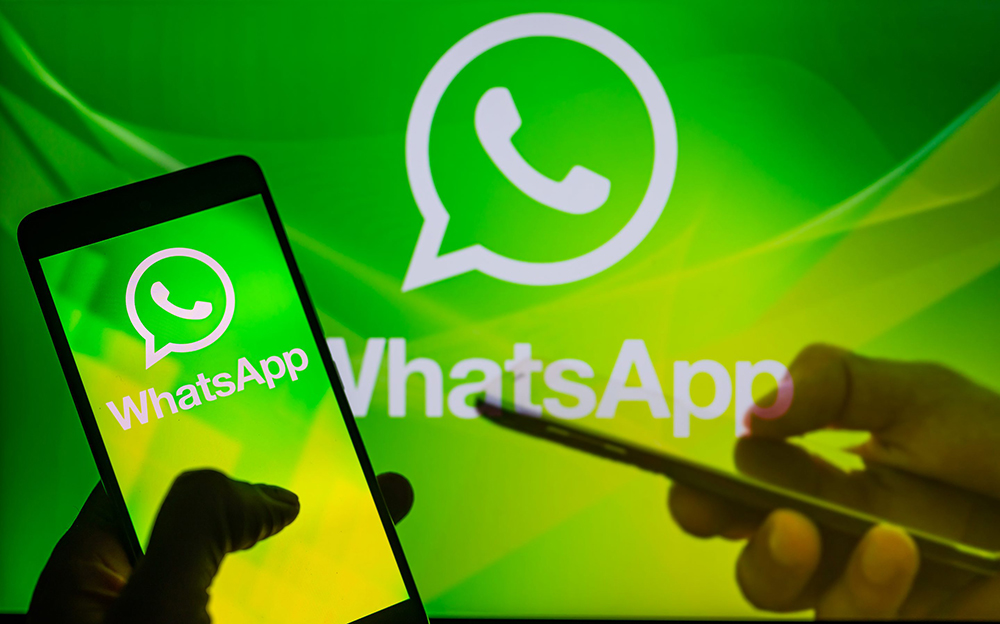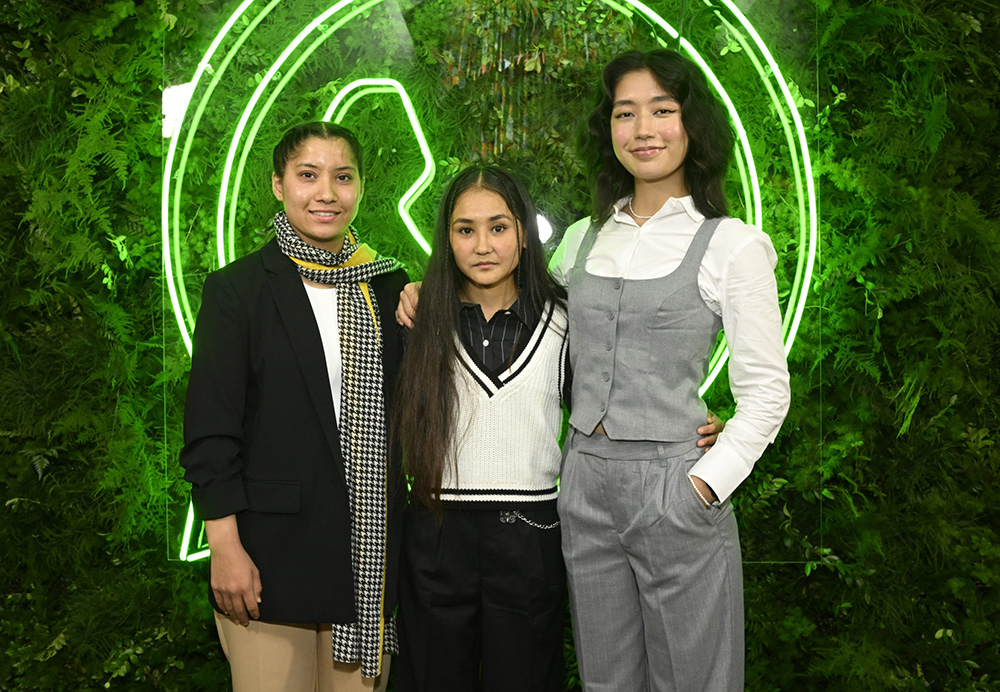
上周,主流即时通信应用WhatsApp发布了一部短片,拍摄了2021年塔利班掌控时期阿富汗青年国家足球队的女孩们逃离该国的故事。这部26分钟的纪录片式影片《We Are Ayenda》展示了女孩们如何利用WhatsApp即时通信服务来组织逃亡,并收录了女孩们在当时拍摄的一系列采访、视频,以及使用WhatsApp界面的录屏。
阿富汗青年国家队成员法蒂玛·扎尔比在电影中表示:“群聊就像是一根蜡烛,是我们的生活,我们的希望。”
该影片发布在亚马逊Prime和YouTube上,期间还有一波其他有着企业色彩的长篇电影上映,从任天堂(Nintendo)的《超级马力欧兄弟大电影》(The Super Marios Bros Movie)到美泰公司(Mattel)的票房大卖影片《芭比》(Barbie)。与那些在电影院放映的大预算制作相比,WhatsApp电影的抱负要低调不少。然而专家们称,这部影片也彰显了一种趋势:各大品牌正日渐转而通过长篇电影来宣传自我。此前一段时间,Tik Tok快餐式短视频似乎才是王道。
皇后学院(Queens College)媒体研究副教授、前电视制作人杰米·科恩表示:“数年前,这种做法在某种程度上是一种禁忌,然而如今,似乎每个品牌都打算制作独属于自身的小电影。”
长篇推广内容并不是什么新事物。2008年,强生(Johnson & Johnson)制作了一部13分钟的电影,讲述了卡特里娜飓风之后护士的角色。2014年,雪佛龙(Chevrolet)拍摄了一部16分钟的纪录片,讲述了一位年轻的女棒球运动员。科恩说,WhatsApp在制作《We Are Ayenda》时并没有追随大流,而是在这个数字时代回归了传统媒体。
他说:“西方是一个基于电视的社会,可能全世界各地都是。”WhatsApp原本可以在TikTok以短视频形式发布其纪录片,这已经成为了近些年来各大公司的一个首要营销工具。他指出,不过,这些零碎的视频并没有长篇内容那么令人难忘,而且WhatsApp意识到了这一点。
他对《财富》说:“此举谈不上任何原创,但同时却又独一无二。”
WhatsApp对类电视内容的偏爱并非毫无缘由。YouTube逐渐将自身定位为一个电视服务,而不是社交媒体平台。TikTok在不断提升用户可以发布视频的长度,如今被称为X的Twitter,将其承载的视频时长增加了一倍,达到了2小时。专注于媒体和娱乐领域的L.E.K. Consulting董事总经理杰弗瑞·卡洛斯基表示,现有的技术让制作高品质视频变得更加容易,同时,像电影工作室和电视网络这类传统的看门人也没有过去那么强大了。他说,尽管这类广告并非什么新鲜事,但它在未来数年之内将变得更盛行。
WhatsApp的电影可以帮助解决其监管问题
当前,WhatsApp母公司Meta正面临着全球监管和公共关系挑战。此时,公司可以利用该电影为自己贴上社会公正和人类利益倡议标签。
欧洲和美国政府当局正在加大对大型科技公司及其加密技术的打击力度,他们称这类技术为犯罪分子和恐怖主义提供了隐藏其行踪的机会。威胁端对端加密的法规让WhatsApp难以在一些高利润市场运营。该电影通过叙事的形式展示了WhatsApp的重要性,并让公司有机会借此来重塑对话、帮助改变公众的意见。卡洛斯基对《财富》说,公司可将《We Are Ayenda》看作是“类似于集结号”的存在。

然而,布莱恩·维泽表示,尽管政客们有能力做出监管调整,但电影的对象似乎是普罗大众,因为它是通过流媒体服务发布的。布莱恩此前曾在媒体收购公司GroupM担任高管,现在在自己创建的公司中担任媒体分析师。他告诉《财富》杂志,如果公司的目标是改变政客的想法,WhatsApp可能会举行行业宣传活动或在欧盟监管重地布鲁塞尔上映这部影片。该应用的负责人威尔·卡斯卡特今年早些时候到访了英国,他曾与记者交谈,并威胁撤出英国。
WhatsApp是否在效仿美泰?
上个月,华纳兄弟探索公司(Warner Bros. Discovery)发行的真人电影《芭比》登陆影院,这是一部有关美泰公司玩偶的喜剧,影片部分内容由这家公司制作。这部电影迅速打破了票房记录,拿到了超过10亿美元的营收。它的发布反映了一个大势,即拍摄与自身产品相关的电影,包括亚马逊的《Air》,苹果的《俄罗斯方块》(Tetris)和Netflix即将上映的《无糖霜:早餐派的故事》(Unfrosted: The Pop-Tart Story)。
讲述有关商品的故事并非始终都是一帆风顺。在知名科技博客Gizmodo 主编、2016年俄罗斯方块书作的作者丹尼尔·艾克曼新发起的诉讼中,俄罗斯方块公司及其首席执行官,连同苹果都成了被告。他称,电影制作商剽窃了其书作中多个章节的内容,而且电影的大致风格也与小说类似。然而,这些电影带来了大量的商业吸引力。《纽约客》(New Yorker)报道称,美泰通过这种模式大赚了一笔,而且计划围绕其玩具发布45部电影。
专家们认为,尽管WhatsApp同样制作了一部推广其产品的电影,但其内容却有别于其他公司的电影。卡洛斯基表示,美泰似乎通过打怀旧牌和剧情来销售产品,而WhatsApp则用其电影来探讨监管事务。
《We Are Ayenda》并未直接提及端对端加密,但该技术却贯穿了整部影片。阿富汗女子国家队的队长法克昆达·穆赫塔吉在电影中说:“安全沟通的风险异常之高。”穆哈塔吉表示,球队成员不仅通过WhatsApp沟通了逃离阿富汗的计划,同时还发送了身份证文件,如果遭到拦截,可能会威胁其生命。这部电影还展现了WhatsApp提供的多款基础工具,例如将某人拉入群聊并发送语音备忘录。
这类企业影片是否能够像电影《芭比》那样打动观众,我们无法得知。在上映首周,《We Are Ayenda》似乎并没有激起多少线上讨论。社交媒体上的讨论源于参加过电影的各方,包括WhatsApp、球队队员和Anonymous Content。Anonymous Content是《十三个原因》(13 Reasons Why)和《富家穷路》(Schitt’s Creek)的制作公司,该公司与Meta合作拍摄了这部电影。社交媒体用户正在与WhatsApp有关这部电影的贴文互动,但多数评论都类似于灌水,而不是在讨论电影。YouTube显示该电影的观看量达到了6.4万次,但我们并不清楚有多少用户完整地观看了这部电影。《We Are Ayenda》在亚马逊上仅有三条评论,在IMDb上连个页面都没有。(财富中文网)
译者:冯丰
审校:夏林
上周,主流即时通信应用WhatsApp发布了一部短片,拍摄了2021年塔利班掌控时期阿富汗青年国家足球队的女孩们逃离该国的故事。这部26分钟的纪录片式影片《We Are Ayenda》展示了女孩们如何利用WhatsApp即时通信服务来组织逃亡,并收录了女孩们在当时拍摄的一系列采访、视频,以及使用WhatsApp界面的录屏。
阿富汗青年国家队成员法蒂玛·扎尔比在电影中表示:“群聊就像是一根蜡烛,是我们的生活,我们的希望。”
该影片发布在亚马逊Prime和YouTube上,期间还有一波其他有着企业色彩的长篇电影上映,从任天堂(Nintendo)的《超级马力欧兄弟大电影》(The Super Marios Bros Movie)到美泰公司(Mattel)的票房大卖影片《芭比》(Barbie)。与那些在电影院放映的大预算制作相比,WhatsApp电影的抱负要低调不少。然而专家们称,这部影片也彰显了一种趋势:各大品牌正日渐转而通过长篇电影来宣传自我。此前一段时间,Tik Tok快餐式短视频似乎才是王道。
皇后学院(Queens College)媒体研究副教授、前电视制作人杰米·科恩表示:“数年前,这种做法在某种程度上是一种禁忌,然而如今,似乎每个品牌都打算制作独属于自身的小电影。”
长篇推广内容并不是什么新事物。2008年,强生(Johnson & Johnson)制作了一部13分钟的电影,讲述了卡特里娜飓风之后护士的角色。2014年,雪佛龙(Chevrolet)拍摄了一部16分钟的纪录片,讲述了一位年轻的女棒球运动员。科恩说,WhatsApp在制作《We Are Ayenda》时并没有追随大流,而是在这个数字时代回归了传统媒体。
他说:“西方是一个基于电视的社会,可能全世界各地都是。”WhatsApp原本可以在TikTok以短视频形式发布其纪录片,这已经成为了近些年来各大公司的一个首要营销工具。他指出,不过,这些零碎的视频并没有长篇内容那么令人难忘,而且WhatsApp意识到了这一点。
他对《财富》说:“此举谈不上任何原创,但同时却又独一无二。”
WhatsApp对类电视内容的偏爱并非毫无缘由。YouTube逐渐将自身定位为一个电视服务,而不是社交媒体平台。TikTok在不断提升用户可以发布视频的长度,如今被称为X的Twitter,将其承载的视频时长增加了一倍,达到了2小时。专注于媒体和娱乐领域的L.E.K. Consulting董事总经理杰弗瑞·卡洛斯基表示,现有的技术让制作高品质视频变得更加容易,同时,像电影工作室和电视网络这类传统的看门人也没有过去那么强大了。他说,尽管这类广告并非什么新鲜事,但它在未来数年之内将变得更盛行。
WhatsApp的电影可以帮助解决其监管问题
当前,WhatsApp母公司Meta正面临着全球监管和公共关系挑战。此时,公司可以利用该电影为自己贴上社会公正和人类利益倡议标签。
欧洲和美国政府当局正在加大对大型科技公司及其加密技术的打击力度,他们称这类技术为犯罪分子和恐怖主义提供了隐藏其行踪的机会。威胁端对端加密的法规让WhatsApp难以在一些高利润市场运营。该电影通过叙事的形式展示了WhatsApp的重要性,并让公司有机会借此来重塑对话、帮助改变公众的意见。卡洛斯基对《财富》说,公司可将《We Are Ayenda》看作是“类似于集结号”的存在。
来自于阿富汗青年国家足球队的法蒂玛·扎尔比,阿兹扎·阿里·扎达和法特玛·埃尔法尼出席《We Are Ayenda》放映式。
然而,布莱恩·维泽表示,尽管政客们有能力做出监管调整,但电影的对象似乎是普罗大众,因为它是通过流媒体服务发布的。布莱恩此前曾在媒体收购公司GroupM担任高管,现在在自己创建的公司中担任媒体分析师。他告诉《财富》杂志,如果公司的目标是改变政客的想法,WhatsApp可能会举行行业宣传活动或在欧盟监管重地布鲁塞尔上映这部影片。该应用的负责人威尔·卡斯卡特今年早些时候到访了英国,他曾与记者交谈,并威胁撤出英国。
WhatsApp是否在效仿美泰?
上个月,华纳兄弟探索公司(Warner Bros. Discovery)发行的真人电影《芭比》登陆影院,这是一部有关美泰公司玩偶的喜剧,影片部分内容由这家公司制作。这部电影迅速打破了票房记录,拿到了超过10亿美元的营收。它的发布反映了一个大势,即拍摄与自身产品相关的电影,包括亚马逊的《Air》,苹果的《俄罗斯方块》(Tetris)和Netflix即将上映的《无糖霜:早餐派的故事》(Unfrosted: The Pop-Tart Story)。
讲述有关商品的故事并非始终都是一帆风顺。在知名科技博客Gizmodo 主编、2016年俄罗斯方块书作的作者丹尼尔·艾克曼新发起的诉讼中,俄罗斯方块公司及其首席执行官,连同苹果都成了被告。他称,电影制作商剽窃了其书作中多个章节的内容,而且电影的大致风格也与小说类似。然而,这些电影带来了大量的商业吸引力。《纽约客》(New Yorker)报道称,美泰通过这种模式大赚了一笔,而且计划围绕其玩具发布45部电影。
专家们认为,尽管WhatsApp同样制作了一部推广其产品的电影,但其内容却有别于其他公司的电影。卡洛斯基表示,美泰似乎通过打怀旧牌和剧情来销售产品,而WhatsApp则用其电影来探讨监管事务。
《We Are Ayenda》并未直接提及端对端加密,但该技术却贯穿了整部影片。阿富汗女子国家队的队长法克昆达·穆赫塔吉在电影中说:“安全沟通的风险异常之高。”穆哈塔吉表示,球队成员不仅通过WhatsApp沟通了逃离阿富汗的计划,同时还发送了身份证文件,如果遭到拦截,可能会威胁其生命。这部电影还展现了WhatsApp提供的多款基础工具,例如将某人拉入群聊并发送语音备忘录。
这类企业影片是否能够像电影《芭比》那样打动观众,我们无法得知。在上映首周,《We Are Ayenda》似乎并没有激起多少线上讨论。社交媒体上的讨论源于参加过电影的各方,包括WhatsApp、球队队员和Anonymous Content。Anonymous Content是《十三个原因》(13 Reasons Why)和《富家穷路》(Schitt’s Creek)的制作公司,该公司与Meta合作拍摄了这部电影。社交媒体用户正在与WhatsApp有关这部电影的贴文互动,但多数评论都类似于灌水,而不是在讨论电影。YouTube显示该电影的观看量达到了6.4万次,但我们并不清楚有多少用户完整地观看了这部电影。《We Are Ayenda》在亚马逊上仅有三条评论,在IMDb上连个页面都没有。(财富中文网)
译者:冯丰
审校:夏林
Last week, WhatsApp, the popular messaging app, released a short film following girls from Afghanistan’s youth national soccer team fleeing the country as the Taliban took control in 2021. The 26-minute documentary-style film We Are Ayenda—which shows the girls relying on WhatsApp’s messaging service to organize their escape—incorporates a mix of interviews, videos the girls filmed at the time, and screen recordings of WhatsApp’s interface.
“That group chat was like a candle,” said Fatima Zarbi, an Afghan youth national team member, in the film. “It was our life, our hope.”
The film, released on Amazon Prime and YouTube, comes amid a wave of other long-form films with corporate pedigree, from Nintendo’s The Super Marios Bros Movie to Mattel’s box office blockbuster Barbie. Compared to those big-budget titles, produced for theatrical release, the WhatsApp film has more modest ambitions. But its creation underscores how brands are increasingly turning to long-form storytelling to spread their messages, after a period where short, TikTok-length videos appeared to be king, according to experts.
“This was somewhat taboo years ago and now feels like every brand is going to have their very own mini-movie,” said Jamie Cohen, assistant professor of media studies at Queens College and former television producer.
Long-form sponsored content isn’t completely new. In 2008, Johnson & Johnson produced a 13-minute film about the role of nurses following Hurricane Katrina. In 2014, Chevrolet made a 16-minute documentary about a young, female baseball player. WhatsApp is doing something different with We Are Ayenda, because in a digital age, it is reverting back to traditional media, Cohen said.
“We in the West, and potentially globally, are a television-based society,” he said. WhatsApp could have released its documentary in the form of short videos on TikTok, which has become a key marketing tool for companies in recent years. But those pieces of media aren’t as memorable as long-form content, and WhatsApp recognizes that, he said.
“It’s wildly unoriginal, and at the same time completely unique,” he told Fortune.
WhatsApp’s gravitation towards television-like content isn’t happening in a vacuum. YouTube is increasingly positioning itself as a television service rather than a social media platform. TikTok continues to increase the length of videos users can post, and Twitter, now called X, doubled the length of videos it can host to two hours. Not only has it gotten easier to make high quality content with the technology available, but traditional gatekeepers like movie studios and television networks aren’t as strong as in the past, said Jeffrey Kaloski, managing director at L.E.K. Consulting with specialties in media and entertainment. While this type of advertising isn’t new, it will become more prevalent in the coming years, he said.
WhatsApp’s film could help address its regulatory problems
For Meta, the parent company of WhatsApp, the film provides a way to align itself with social justice and human interest initiatives at a time when it’s facing regulatory and public relations challenges across the globe.
European and U.S. government bodies are increasingly cracking down on Big Tech companies and their encryption technologies, which they say let criminals and terrorists hide their tracks. Regulation threatening end-to-end encryption could make it more difficult for WhatsApp to function in some of its most lucrative markets. By showing the importance of WhatsApp in narrative form, the film is a way for the company to reframe the conversation and help sway public opinion. The company can use We Are Ayenda “as a bit of a rallying cry,” Kaloski told Fortune.
Fatima Zarbi, Aziza Ali Zada, and Fatema Erfani—from the Afghan youth national soccer team—at the “We Are Ayenda” screening.
Yet while politicians have the ability to make regulatory change, the film appears to be geared towards general audiences because it is distributed by streaming services, said Brian Wieser, a media analyst at his own firm and former executive at media buyer GroupM. If the goal was to change politicians’ minds, WhatsApp might have run trade campaigns or screened the film in Brussels, an E.U. regulatory hotspot, he told Fortune. But WhatsApp has targeted politicians in other ways. The app’s chief Will Cathcart traveled to the U.K. earlier this year, where he spoke with journalists and threatened to pull its services from the territory.
Is WhatsApp copying Barbie?
Last month, Warner Bros. Discovery released Barbie, a comedy about the Mattel doll produced in part by the toy maker. It quickly broke records at the box office, garnering more than $1 billion in revenue. The release reflects a larger trend towards product-related movies, including Amazon’s Air, Apple’s Tetris, and Netflix’s upcoming Unfrosted: The Pop-Tart Story.
Telling stories about commodities isn’t always smooth sailing. The Tetris Company and its CEO are defendants, along with Apple, in a new lawsuit from Daniel Ackerman, the Gizmodo editor-in-chief and author of a 2016 book about Tetris. He claims the movie makers poached various sections of his book and its general style for the movie. Still, these films have massive commercial appeal. Mattel is capitalizing on this style with plans to release 45 movies about its toys, the New Yorker reported.
While WhatsApp similarly made a film starring its product, it isn’t doing the same thing as these other releases, experts agreed. Mattel appears to be leaning on nostalgia and play to sell products, while WhatsApp is positioning its film to have a discussion on regulatory matters, said Kaloski.
We Are Ayenda does not explicitly mention end-to-end encryption, but the technology is present throughout the film. “The stakes were extremely high for secure communication,” Farkhunda Muhtaj, captain of the Afghan women’s national team, says in the film. The teammates not only communicated plans to escape Afghanistan through WhatsApp, but they also sent identification documents that if intercepted, could put their lives at risk, Muhtaj says. The film also staged basic tools WhatsApp offers, like the ability to add someone to a group chat and send voice memos.
Whether this kind of corporate storytelling clicks with audiences the same way that Barbie has remains to be seen. In its first week, We Are Ayenda doesn’t appear to have sparked much conversation online. Discussions on social media are driven by parties that participated in the film, including WhatsApp, the teammates, and Anonymous Content, the production company behind 13 Reasons Why and Schitt’s Creek that partnered with Meta on the film. Social media users are interacting with WhatsApp’s posts about the film, but the majority of comments are spam-like and not about the movie. YouTube shows 64,000 views on the film, but it is unclear how many users watched the film in full. We Are Ayenda only has three ratings on Amazon and does not have a page on IMDb.






